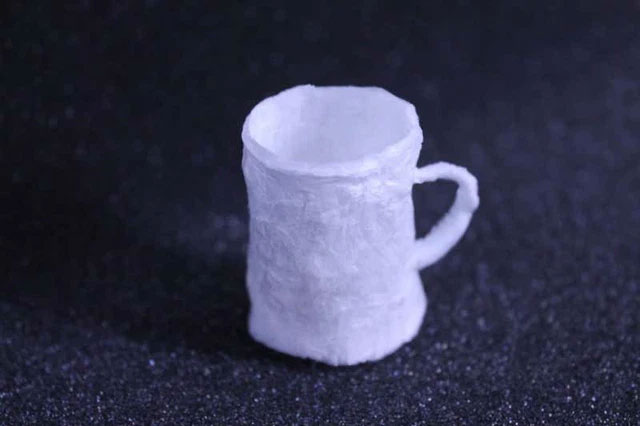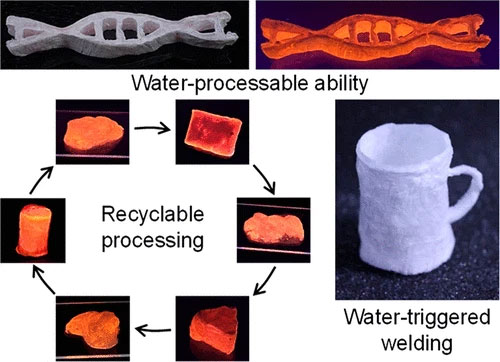Synthetic plastic from salmon sperm and vegetable oil: Easier to recycle and decompose than regular plastic
This world changer is no longer favored (though still widely used). A new plastic made from DNA and vegetable oils could change all that. The production process of plastic requires little energy, and the final product is easy to decompose or recycle.

A cup made from new plastic.
Traditional plastics are harmful to the environment because they are made up of chemicals derived from crude oil and cannot be recycled. The production process requires large amounts of heat and toxic chemicals, and the decomposition process can take up to hundreds of years. Plastic recycling is still inefficient, causing plastic waste to contaminate both land and water.
New types of plastics, synthesized from plants, are becoming more and more popular due to their good degradability. However, the process of producing plastics from seaweed or cornstarch is very energy-intensive.
To overcome the problem, the team at Tianjin University, led by Professor Dayong Yang, has developed an advanced plastic to overcome this problem. By attaching short strands of DNA to chemicals extracted from vegetable oils, the team created a soft and flexible material. It is known that the DNA is taken from the sperm of salmon.

Using the new plastic, the team tried to make a number of objects of various shapes.
Mr. Yang and his colleagues tried pouring new material into the mold, placing the material in a cold environment to absorb all the water, in order to harden the compound back into plastic. Using the new plastic, the team tried to make a number of objects of various shapes, and achieved positive results.
Place new plastic materials in water, the object will return to a plastic state and can be inserted into the mold again. It seems the plastic recycling process is easy.
"What I like about this plastic is that you can break it down and start over," said University of Australia researcher Damian Laird. 'Most of the research is focused on developing biodegradable bioplastics, but if we want to create a closed circle economy, we should recycle them too so that there is no waste of the material. '.
- Vietnam prohibits the production of plastic bags that are difficult to decompose
- Ecobrick project: recycle plastic for building bricks, the most effective solution at the moment
- Why is plastic garbage so difficult to decompose?
- How long does it take for plastic waste to decompose?
- A small 3D printing device that can help build houses with plastic bottles is easier than ever
- Turn waste into fashionable products
- Processing waste plastic bottles into phone cases
- The sperm whale died on the English coast with a plastic sheet in his stomach
- Plastic fishing gear can decompose with sunlight
- Self-destructable wood from rice hulls
- Reduced sperm because sauna?
- An Amazon mushroom can be used for plastic recycling
 'Barefoot engineer' invents a pipeless pump
'Barefoot engineer' invents a pipeless pump Process of handling dead pigs due to disease
Process of handling dead pigs due to disease Radiometer
Radiometer Warp Engine: Technology brings us closer to the speed of light
Warp Engine: Technology brings us closer to the speed of light